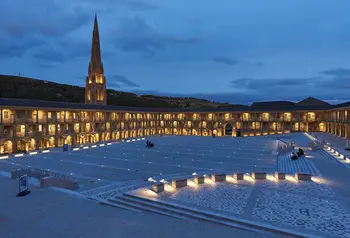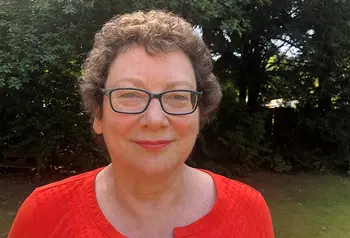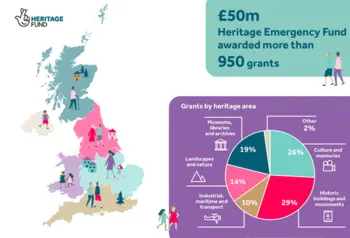RSA Heritage Index reveals the UK’s heritage hotspots

What is the Heritage Index?
The Heritage Index looks at local heritage assets and how they are used, enjoyed and shared, to reflect the state of heritage in the UK. It considers factors including listed buildings, levels of public participation and funding streams.
The index began in 2014 and is produced by the RSA (the royal society for arts, manufactures and commerce) in collaboration with The National Lottery Heritage Fund.
"The Heritage Index is the perfect place to start understanding the full potential of heritage in local areas, bringing more people into the conversation, and imagining how this can play a leading role as we emerge from the COVID-19 crisis.”
Ros Kerslake, CEO
The City of London takes the top spot in the England index for the third year, but it is Richmondshire's jump of 20 positions to reach eighth place which is the big news.
New funding from The National Lottery Heritage Fund alongside an increase in the number of assets of community value – both within the historic built environment domain – has contributed to its rise.
In Wales, Conwy moves up five places to the top position in the index. Belfast and the Orkney Islands stay at the top for Northern Ireland and Scotland respectively.
See the report for the full list for each UK country.

Heritage potential and place
As well as identifying areas that are heritage hotspots, the index also includes a measure of ‘heritage potential’ — areas which have strong, but untapped, heritage assets. The report argues that these areas could do more to promote and preserve their heritage as part of a post-COVID-19 recovery.
In addition, it investigates the relationship between heritage and place — what role can heritage play in successful place shaping, what role does it currently play and how could we close the gap between potential and reality?
Explore the report on the RSA website to see how your area fares.
Ros Kerslake, Chief Executive of The National Lottery Heritage Fund, said: “For many heritage organisations across the UK, 2020 has been the most challenging year to date, and has brought into even sharper focus the heritage on our doorstep and the contribution it can make to jobs, skills, tourism, economic prosperity and wellbeing.
As it becomes clear that the impact of the coronavirus pandemic will have longer-term consequences for the UK heritage sector, our focus as a funder will be towards sector recovery and resilience, including through the welcome support of Government’s Culture Recovery Fund for Heritage.
The Heritage Index is the perfect place to start understanding the full potential of heritage in local areas, bringing more people into the conversation, and imagining how this can play a leading role as we emerge from the COVID-19 crisis.”
What’s next for heritage?
The report emphasises that heritage does not need to solely focus on traditional, built assets, and that heritage also constitutes shared experience, local histories and ‘intangible’ heritage. In the context of new movements to rethink the history of England and the UK, the report calls for a new, inclusive approach to heritage.
It also suggests that, with further support to protect the heritage sector from the impact of COVID-19, it could be a vehicle for economic recovery in the wake of the pandemic.
Hannah Webster, senior researcher at the RSA, said: “We’re asking: what’s next for the heritage sector? It certainly needs support from government to keep things going, but we are hopeful that it can come out of the pandemic with a new generation of supporters. Lockdown has forced us to think more intensely about our local areas, and we’ve seen a colossal uptick in staycationers this year.
“Rethinking how we use our heritage is imperative if the industry is to thrive in the 21st century. The heritage sector, local authorities and others should be looking at how they can use their untapped assets, and how the sector can build back to a more inclusive vision of heritage.”


